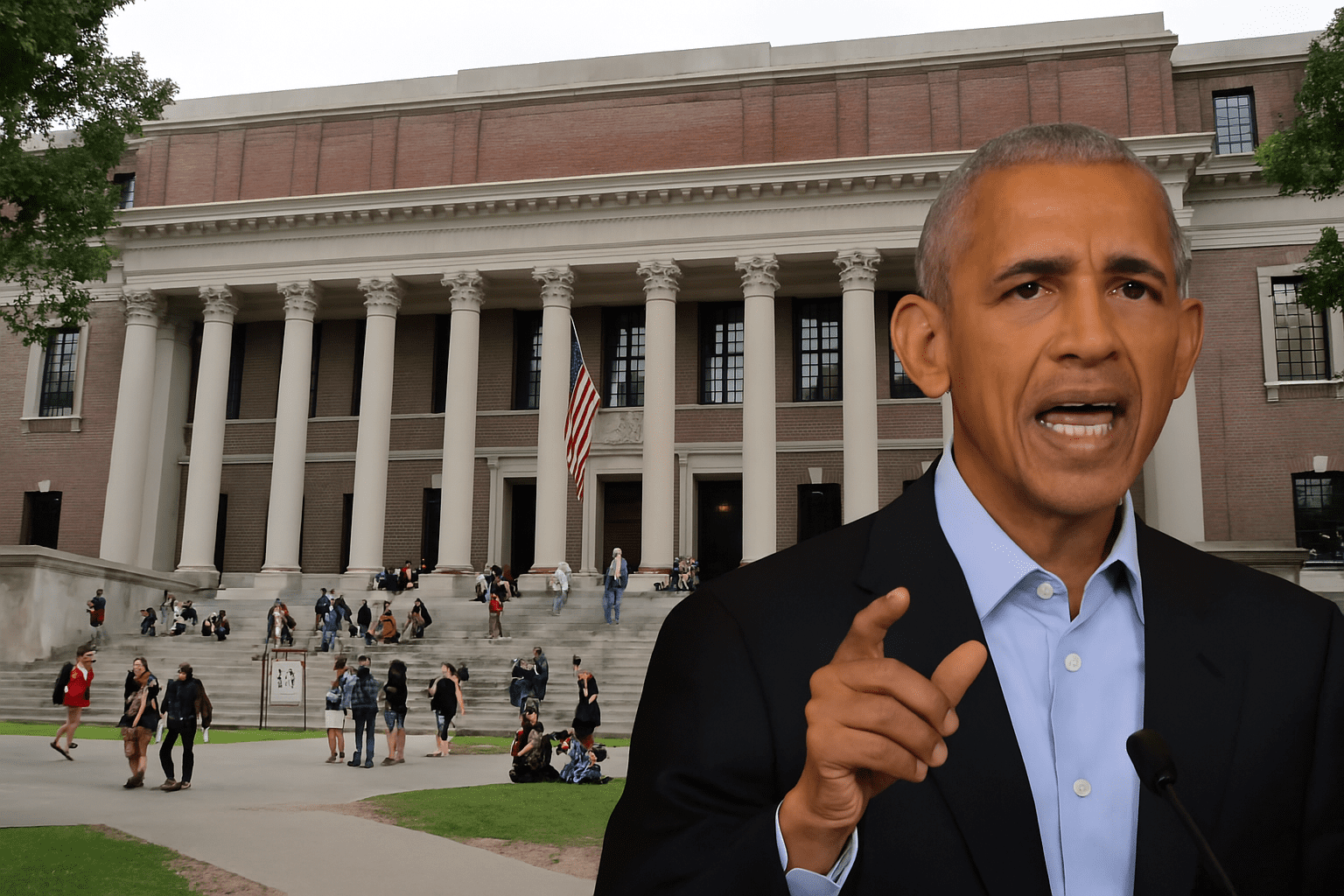Obama Slams Trump’s ‘Ham-Handed’ Crackdown on Harvard University Funding
Former President Barack Obama has sharply criticized the Trump administration’s move to freeze federal funding for Harvard University, describing it as a “ham-handed” assault on academic freedom and democratic values.
A New Front in the Battle Over Higher Education

Tensions between higher education and politics are reaching a boiling point. The Trump administration’s recent decision to suspend $2.3 billion in federal funding to Harvard University has sparked a nationwide uproar. The reason? Harvard refused to comply with controversial new federal mandates.
These mandates include:
- Banning face coverings at campus protests
- Shutting down DEI (Diversity, Equity, and Inclusion) programs
- Enforcing merit-based-only admissions
- Cooperating with immigration enforcement on student visas
Harvard officials rejected the demands, citing concerns about free speech, academic independence, and legal overreach.
Obama Breaks His Silence
Obama, a Harvard Law School graduate and respected voice in academia, took to social media to voice his concern.
“Harvard has set an example for other universities—rejecting an unlawful and ham-handed attempt to stifle academic freedom,” he wrote on X (formerly Twitter).
His message was clear: this isn’t just about Harvard—it’s about protecting the independence of all educational institutions from political interference.
What Sparked the Funding Freeze?
The Trump administration claims that elite institutions like Harvard are harboring radical ideologies, silencing conservative voices, and fostering unrest through campus protests. In response, the White House enacted strict conditions that all federally funded universities must follow.
When Harvard refused to enforce those rules, the administration retaliated by freezing its funding and revoking the visas of hundreds of international students.
Harvard Responds: “We Will Not Be Intimidated”
Interim President Alan Garber issued a statement defending the university’s stance:
“Harvard will continue to protect the principles that define our institution. Academic freedom is not negotiable.”
The university has also filed an injunction in federal court, arguing that the freeze violates constitutional protections such as freedom of speech and due process.
A Ripple Effect Across American Campuses
Harvard is not alone. Other Ivy League institutions like Yale, Columbia, and Princeton are also facing similar scrutiny. More than $11 billion in education-related federal aid is reportedly under review, with threats of broader defunding across the country.
The pressure campaign has already forced some universities to suspend DEI programs and tighten campus protest rules.
Academic Freedom on the Line
Obama’s criticism isn’t just about Harvard. It’s about preserving democracy through independent education. As someone who once taught constitutional law, his concern is grounded in experience.
“You can’t have a free society if students, scholars, and institutions live in fear of political punishment for teaching or thinking freely,” said a former Obama administration education advisor.
The concern now is that if a school like Harvard can be targeted, no institution is safe.
The Bigger Picture: Why This Fight Matters
This case is about more than just funding—it’s about the future of free thought in America. Universities have always been a space for:
- Critical thinking
- Civil debate
- Social progress
By punishing institutions that refuse to follow political directives, critics argue that the government is undermining the very mission of education.
Students and Faculty Speak Out
Across the country, student groups and faculty associations are organizing protests and issuing statements in solidarity with Harvard. Many have called the crackdown “a step toward authoritarianism” and “a direct attack on education.”
One Harvard student leader said:
“This fight is not about Harvard. It’s about who controls our right to learn and express ourselves.”
Legal Experts Weigh In
Constitutional scholars say this case could reshape the future of federal funding and academic freedom. Some argue that using financial power to force ideological compliance is unconstitutional.
“We are entering dangerous territory when universities are coerced into becoming political tools,” said Professor Lara Jenkins of Georgetown University.
A court ruling in favor of Harvard could set a precedent protecting schools nationwide. On the other hand, a loss could encourage further government interference in education.
Obama’s Vision for the Future of Higher Education
Obama’s comments are not just reactive—they’re aspirational. He has long promoted a vision of American education that values inclusion, dialogue, and independence.
In his post, Obama urged universities, students, and citizens alike to defend these values.
“This is a moment to stand up—not just for Harvard, but for the soul of American education,” he wrote.
What Happens Next?
Harvard’s legal case is expected to move quickly. Education advocates are preparing to intervene, and several civil rights organizations are already filing amicus briefs.
Meanwhile, universities across the U.S. are watching closely, as the outcome could determine:
- How far government can go in shaping campus policies
- Whether political disagreement can justify withholding funding
- The future of free speech in academic settings
Final Thoughts
This confrontation between Harvard and the Trump administration is more than a policy dispute—it’s a philosophical clash over the role of education in society.
Should universities follow the government’s political lead? Or should they remain spaces of independent thought, protected from interference?
Former President Obama has made his stance clear. And now, millions of students, educators, and citizens must decide where they stand as well.
Read this also:Epoch Readers’ Poll Shows Strong Support for America’s Trade Reset Under Trump


